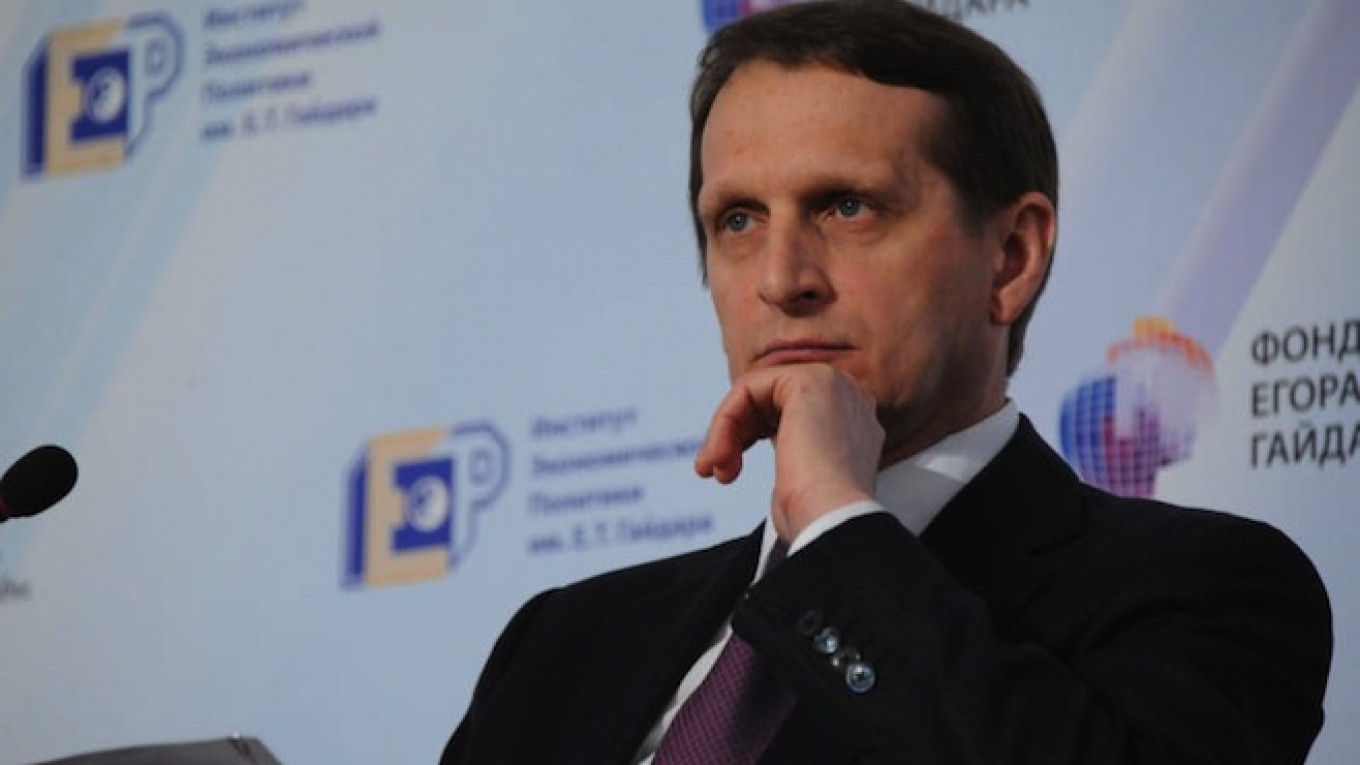The speaker of the lower house of the Russian parliament said Thursday that Crimea, which Russia annexed from Ukraine last year, was in fact “peacefully annexed” by Ukraine from Russia back in 1991 when the Soviet Union collapsed, the TASS news agency reported.
State Duma speaker Sergei Naryshkin made the comments to French members of parliament who had stopped in Moscow on their way to Crimea, where they plan to meet with ordinary people to assess the situation in the disputed territory.
“I am confident that people will tell you honestly how they felt and how they lived all these 23 years — from 1991 to 2014 — when, due to a number of circumstances, Crimea was in essence peacefully annexed by Ukraine,” Naryshkin told the group.
Crimea was transferred to Ukraine from Russia in 1954, when both countries were part of the Soviet Union, by the Soviet leadership headed by Nikita Krushchev.
Since Russia's annexation of the peninsula last March following a referendum that was not recognized as legal by most members of the United Nations, Russian officials have repeatedly questioned the legality of its 1954 transfer to Ukraine.
Russian officials and politicians reject the term “annexed” for the territory's return to Russia that is widely used by Western politicians and media. Ukrainian officials say Crimea is occupied by Russia.
Members of the French parliament arrived in Russia on Thursday to visit Moscow and Crimea. Their visit, which is not an official delegation from the French government, has been heavily criticized by the French Foreign Ministry, as well as by the Ukrainian authorities who have threatened to ban them from Ukraine in the future.
A Message from The Moscow Times:
Dear readers,
We are facing unprecedented challenges. Russia's Prosecutor General's Office has designated The Moscow Times as an "undesirable" organization, criminalizing our work and putting our staff at risk of prosecution. This follows our earlier unjust labeling as a "foreign agent."
These actions are direct attempts to silence independent journalism in Russia. The authorities claim our work "discredits the decisions of the Russian leadership." We see things differently: we strive to provide accurate, unbiased reporting on Russia.
We, the journalists of The Moscow Times, refuse to be silenced. But to continue our work, we need your help.
Your support, no matter how small, makes a world of difference. If you can, please support us monthly starting from just $2. It's quick to set up, and every contribution makes a significant impact.
By supporting The Moscow Times, you're defending open, independent journalism in the face of repression. Thank you for standing with us.
Remind me later.






